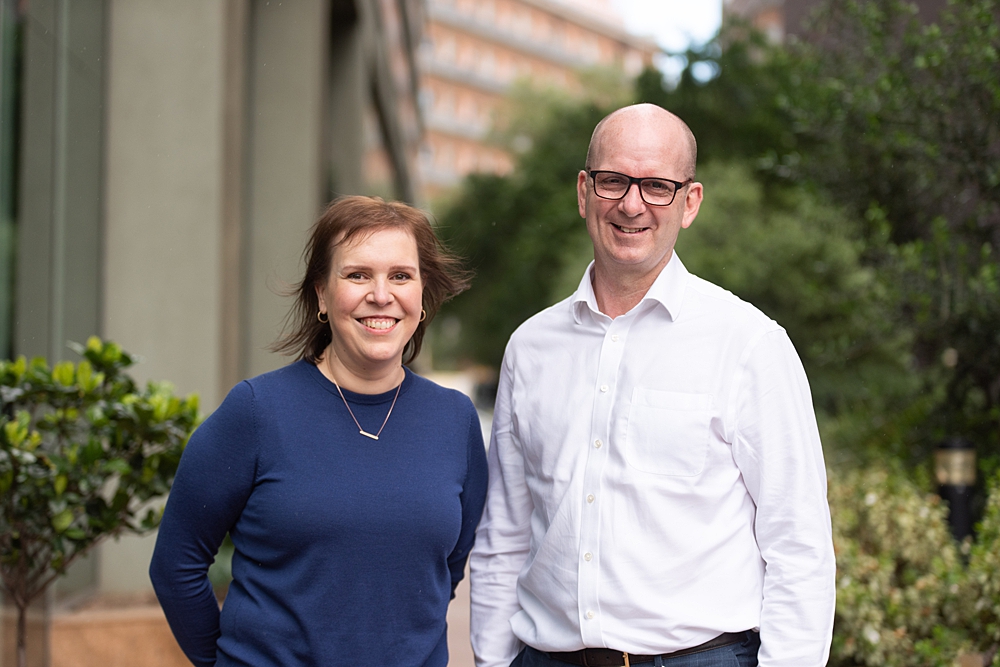When Melissa first noticed the lump protruding from her belly button 12 years ago, she thought it was simply from her suit pants.
It wasn’t until she visited a doctor that Melissa was hit with the harsh reality: not only was the lump a melanoma, it was in danger of spreading to her major organs.
“From that moment everything happened quickly. Within a few rollercoaster weeks I went from not knowing what a melanoma was to having a large and aggressive one cut out of me.”
With her melanoma removed, the 29-year-old went back to her beloved job as a hotel manager and gradually her life returned to normal.
There have been exciting and innovative advances in treatments over recent years – and it’s thanks to them that I’m still here.
A fateful call
Unfortunately, two years later she got the call that changed her life forever.
“My doctor told me that I needed to come and see him. I’d had a sinking sense that something was wrong for a while, so I asked him if I should bring my mum along for support. When he said that would be a good idea, it told me all I needed to know.”
The melanoma had metastasised, spreading to her lungs.
Melissa was given the option of traditional treatment options or taking part in an innovative clinical trial using targeted therapy– she chose the latter.
“I was told that this new treatment might let me live a little longer, which would hopefully allow me to undergo some cutting-edge treatments that were on the horizon.”
After initially responding well to the targeted therapy, Melissa was delivered another blow. Her melanoma had now spread to her brain. Without emergency brain surgery, she was given mere weeks to live.

An emotional goodbye
“That night I crawled into mum and dad’s bed like I was a little girl again and sobbed. It was the first time that I’d cried since my initial diagnosis and it just poured out of me. It was so hard to see my parents for what could be the last time, and in that moment I knew that I’d do anything to buy myself even a bit more time with my family.”
The surgery was a success, buying her some precious time, but Melissa’s prognosis remained dire; she was in palliative care, severely underweight and unable to walk or talk. She needed further life-saving treatment and she needed it fast. Melissa’s family, friends, doctors and community rallied around her to raise the funds needed to access a new immunotherapy drug, Ipilimumab (only available through a clinical trial).
Melissa responded well to the new treatment, gradually regaining her mobility and speech.
Since then, Melissa has faced a number of setbacks including further brain metastasis, another round of brain surgery and radiotherapy. And yet, she has continued to defy the odds. It’s this resilience that has led to Melissa’s doctors affectionately naming her the miracle patient.
An advocate for change
“I’m here thanks to the amazing power of research, incredible teams of health professionals led by Professor Grant McArthur and Professor Mark Shackleton, and, critically, the opportunity to access new melanoma treatments through clinical trials. Without those treatments, I have no doubt I wouldn’t have made it 2 years – let alone 12.”
Melissa works closely with Melanoma and Skin Cancer Trials, as an outspoken advocate for patients. She successfully lobbied to get Ipilimumab and Pembrolizumab, another immunotherapy drug she credits with saving her life, added to the Pharmaceutical Benefits Scheme. She was also instrumental in having sunbeds banned throughout Australia.
“I love seeing the immense impact that clinical trials can have. When I was first diagnosed with melanoma in 2008, cancer clinics were quiet places. Now they’re brimming with people, because people are surviving and coming back again and again, and it’s all thanks to medical research and clinical trials.”

